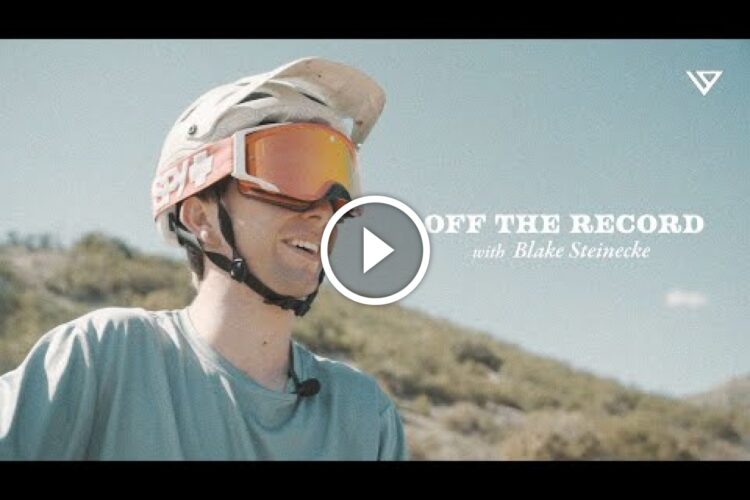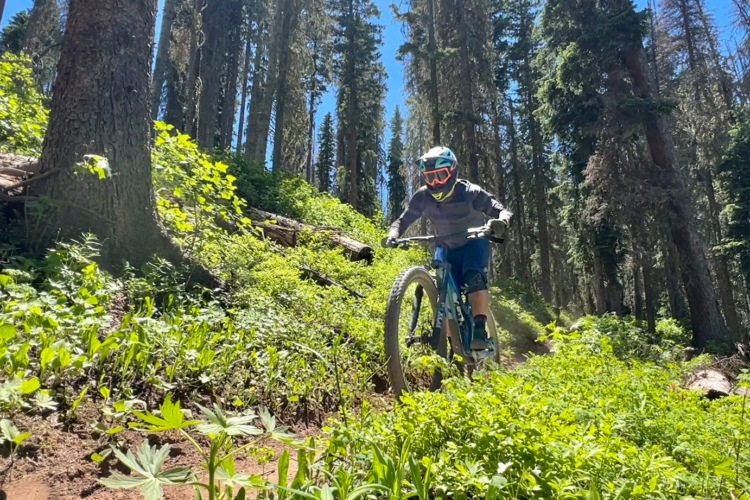The closure of the Boulder-White Clouds to mountain bikes thanks to its new Wilderness designation and the coincidentally-timed launch of the Sustainable Trails Coalition is brewing a controversy of epic proportions in the mountain bike and conservation world. But that storm of controversy may also create the critical winds of change. I’ve written about this topic already–if you missed it, you can check out my article, here.
Admittedly, this is a controversial topic, even in the mountain biking community. Some commentators have asked me to reconsider my position, and others have cursed me up and down for my take on the topic.
I just want to let everyone know: I’ve spent some time reconsidering my position. I’ve reconsidered, and I’ve decided that the opinion piece that I penned before may have been too mild. I’m now only more passionate about getting mountain bikes into Wilderness.
Personally, I think this is a topic that should be of major importance to the entire MTB community. It does my heart good to see anyone and everyone covering this topic–and some other mountain bike media outlets and writers that I respect have been doing a fantastic job. First, Kurt Gensheimer, the Angry Singlespeeder, wrote on MTBR about the Sustainable Trails Coalition. While he made his position known, this is actually one of the more level-headed articles I’ve read from him–I think it’s extremely well-reasoned.
Next up, Vernon Felton and Bike Magazine have released the video above–and they have more coverage on the way both in print and digital. Here’s a link to the original video and explanation, but I’ve copied the key info below for your convenience. Be sure to investigate the articles that Vernon has linked to:
What the hell is this video about? Well, hopefully it speaks for itself–it’s both about the recent loss of some of the best riding in the western United States and about the larger issue of why mountain biking in wilderness areas is illegal. Or to put it simply, this is a video about why you should give a damn about a topic you may not have thought much about before.
What we’ve created is, I’ll readily admit, a fairly short video about an amazingly complex subject. That’s because The Golden Rule of Video says something along the lines of “Thou shalt not bore the crap out of the audience.” We tried to toe that line while still giving you enough grist to form your own opinion.
That said, if you’re itching for more background on the ban on bikes–how it happened, why it happened, and the rationale for it—check out this story here.
Want to see those studies I refer to, which show that bikes have no more negative effect on trails and wildlife than hiking? Read this summary of the science.
What’s happening in Montana with the trail closures? Check this out.
But rest assured, you’ll also be seeing a full-length feature story on this subject in Bike’s print and digital magazine in the near future and it will, I promise, go in-depth with members of the Sierra Club, IMBA and the emerging Sustainable Trails Coalition—a group which is aiming to go at the bike ban from a different angle than IMBA.
We’re just getting started here.
Do you want to ride your bike in Wilderness as well? Donate to the Sustainable Trails Coalition Now!






















11 Comments
Aug 28, 2015
Aug 29, 2015
Tracks? Boots leave tracks. Hooves leave tracks (deep ones at that). The owners of those hooves also leave other, far more unsavory things behind as well! The "setting" is no more altered by a tire than any a number of things pedestrians do.
"Public land in this country has an endless supply of trails and scenic vistas to explore."
And MTBs are excluded from as much of 85% of our backcountry (depending on the state). That unfair, irrational, and selfish (by those who retain the privileged status to be able to keep it unto themselves) situation is truly the architect of the "shameful day" we currently live under.
Aug 28, 2015
The argument here is BLM taking land that was once open to mountain bikers and categorizing it differently so that user-group is unable to have access any longer. Why not place a caveat in this designation so mountain bikers can retain user status? Again, I want to see a study done to see if there is an impact to the local economies due to the Wilderness designation now that MTB'ers won't be traveling to these trails.
Aug 22, 2015
I want to know how much the local economies have been effected in the communities surrounding Boulder-White Clouds since the area has been deemed Wilderness. That guy from Sierra Club is a joke too.
Aug 27, 2015
Sep 2, 2015
Aug 27, 2015
Aug 28, 2015
Aug 26, 2015
Aug 29, 2015
First, bikes have been proven to have similar impact on trails as boots and far less than horses.
Second, cycling has proven to be equally or less disturbing to most species than pedestrians (after all that's who carries guns). Whether it's bald eagles, bighorn sheep or bears, the effect by bikes is equal or less.
Third, the same goes for fauna, especially since bikes are far less likely to go off trail than hikers or equestrians.
" . . . and are only concerned with their own gratification."
Interesting comment when it's hikers who have access to 100% of our backcountry while bikes have access to as little as 15% of our backcountry (depending on the state), and said privileged, elitist hikers go to extreme lengths and major heavy duty lobbying to protect that privileged status--heaven forbid their gratification be disturbed by something so heinous as a bicycle!!!
"Haters of the Act .. "
Typical use of falsely prejudicial verbiage. Nobody here hates the Act--we would just like to see it returned to its original intent, something you need to study before you make such a statement.
"are just looking for a thrill .. . "
Another false statement. Backcountry bikers share the same conservation ethos as backcountry hikers. Solitude, scenery, peace and the pleasures of enjoying the outdoors are our goals, same as you.
"Think about the big picture rather than just one’s self."
I and my fellow members of this movement do . . . always. The fact is that there is no difference in impact and if one is allowed, so should both be. If one should not be allowed, than neither should. If we need to restrict human presence, than we're all for it . . . so long as we do it in a fair and equitable way.
Aug 1, 2016